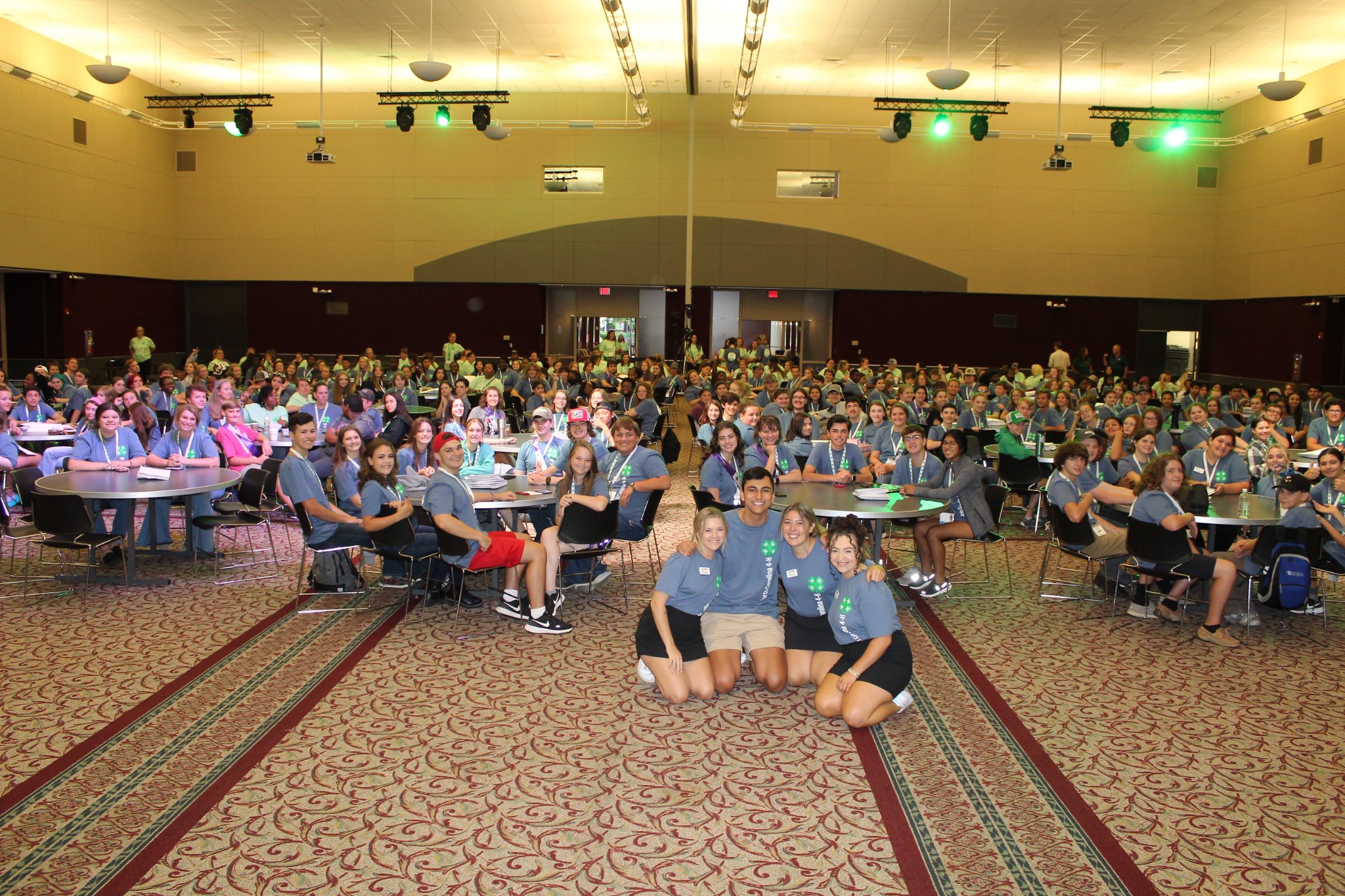4-H Develops Young Leaders, Holds Training
go.ncsu.edu/readext?912007
en Español / em Português
El inglés es el idioma de control de esta página. En la medida en que haya algún conflicto entre la traducción al inglés y la traducción, el inglés prevalece.
Al hacer clic en el enlace de traducción se activa un servicio de traducción gratuito para convertir la página al español. Al igual que con cualquier traducción por Internet, la conversión no es sensible al contexto y puede que no traduzca el texto en su significado original. NC State Extension no garantiza la exactitud del texto traducido. Por favor, tenga en cuenta que algunas aplicaciones y/o servicios pueden no funcionar como se espera cuando se traducen.
Português
Inglês é o idioma de controle desta página. Na medida que haja algum conflito entre o texto original em Inglês e a tradução, o Inglês prevalece.
Ao clicar no link de tradução, um serviço gratuito de tradução será ativado para converter a página para o Português. Como em qualquer tradução pela internet, a conversão não é sensivel ao contexto e pode não ocorrer a tradução para o significado orginal. O serviço de Extensão da Carolina do Norte (NC State Extension) não garante a exatidão do texto traduzido. Por favor, observe que algumas funções ou serviços podem não funcionar como esperado após a tradução.
English
English is the controlling language of this page. To the extent there is any conflict between the English text and the translation, English controls.
Clicking on the translation link activates a free translation service to convert the page to Spanish. As with any Internet translation, the conversion is not context-sensitive and may not translate the text to its original meaning. NC State Extension does not guarantee the accuracy of the translated text. Please note that some applications and/or services may not function as expected when translated.
Collapse ▲“Learn by doing” summarizes the way 4-H teaches youth new skills and provides educational experiences. This attitude shines through when looking at leadership development among youth in 4-H.
On January 10, thirteen youth leaders gathered in Lenoir in an effort to learn to lead their 4-H Clubs as officers and practice leadership skills.
Any youth member in a 4-H Club can be elected by their peers to serve in an officer position. The most common officer roles are president, vice president and secretary with some clubs also having treasurers and reporters or photographers elected annually. They are supported by adult volunteers and the county Extension agent for 4-H.
The officers training taught local youth about their officer roles and responsibilities, how to effectively run their clubs’ meetings and what tools they have available to them to help them succeed in 2023.

Pictured are some 2022 and 2023 officers with the Cooking 4-H Club at the fall paper clover campaign with Tractor Supply Company in Lenoir. From left to right is Zoë Smith, Zoe Woods, Malachi Schwartz, Keaton Benfield (in costume) and Caleb Schwartz. 4-H Club officers often help with any fundraisers and other special events for 4-H.
Research published in the Journal of Human Sciences and Extension in April 2022 looked at how youth, and more specifically teenagers, develop their attitudes about leadership.
The researchers found “The most common response for experiences that led to a 4-H youth’s choice to pursue a leadership role was a previous leadership experience.”
This indicates it might be difficult for youth to view themselves as leaders if they have not taken on leadership roles in the past or been given opportunities to practice leadership. Self-reflection is another critical aspect of youth realizing their leadership potential.
The research article titled, “A Youth Perspective: The 4-H Teen’s Leadership Identity Development Journey” also discussed who usually influences youth and their leadership aspirations.
“When discussing those who have influenced or supported the 4-H youth’s endeavors to become a leader, participants most commonly responded with family members and their Extension agents,” reads the article.
For youth not in 4-H, this could extend to coaches, teachers, religious leaders and other mentors.

In addition to local leadership opportunities, 4-H members can grow as leaders through district and state programs. In July 2022, Caldwell County had one 4-H member attend North Carolina 4-H Congress in Raleigh.
Earlier studies have also supported that 4-H members who participate in leadership programs have shown an increase in leadership skills, and oftentimes these young people are characterized as future community leaders.
4-H Club officers are not the only youth leaders in 4-H. Junior Leaders is a popular summer program for youth wanting to build leadership skills, and 4-H camping centers in North Carolina offer Leader-in-Training programs.
To learn more about how youth can participate in 4-H, develop their leadership skills or have access to leadership opportunities, contact Caldwell County 4-H Agent Sarah Kocher at sarah_kocher@ncsu.edu. Families can also view local 4-H information online at caldwell.ces.ncsu.edu.
Caldwell County 4-H is a proud member agency of United Way.
Sarah Kocher is the 4-H Youth Development Agent withN.C. Cooperative Extension, Caldwell County Center. The N.C. Cooperative Extension, Caldwell County Center, 120 Hospital Ave. NE #1 in Lenoir, provides access to resources of N.C. State University and N.C. A&T State University through educational programs and publications.




